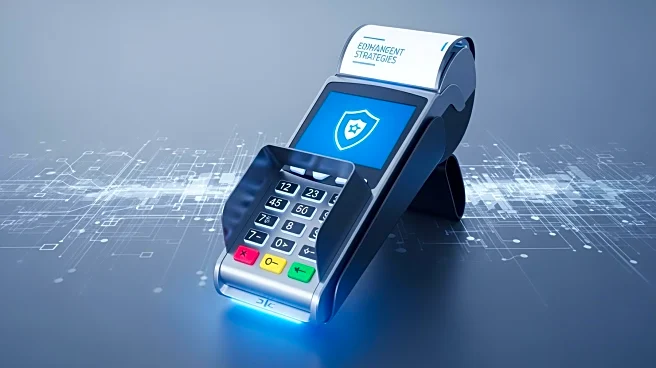What's Happening?
Eric Horgan of Elavon emphasizes the importance of treating payment systems as critical infrastructure in the retail sector. With increasing fraud, shrinking margins, and heightened customer expectations,
Horgan discusses the need for retailers to optimize their payment strategies. He highlights the expected 40% surge in chargeback volumes by 2026 and suggests using Transaction Risk Analysis to improve approval rates. Horgan also points out inefficiencies in current systems that, if addressed, could lead to immediate financial gains. He advocates for a shift from cost-cutting to exploring payment-driven revenue growth and warns against over-reliance on consolidated payment providers.
Why It's Important?
The insights shared by Horgan are crucial for retail leaders aiming to protect against disruptions and hidden costs. As the retail industry faces mounting pressures, optimizing payment systems can lead to significant financial benefits. By focusing on payment-driven revenue growth, retailers can enhance their resilience and efficiency. The discussion also highlights the importance of partnerships and continuous improvement in navigating the evolving retail landscape, which is essential for maintaining competitiveness and customer satisfaction.
What's Next?
Retailers are encouraged to reassess their payment strategies and consider implementing Transaction Risk Analysis to mitigate chargeback risks. Exploring partnerships with payment providers that offer comprehensive solutions could enhance operational efficiency. As the industry evolves, retailers may need to adapt to new technologies and strategies to stay ahead of fraud and customer expectations.
Beyond the Headlines
The conversation underscores the ethical responsibility of payment providers to support retailers in optimizing their systems. It also hints at potential long-term shifts in the retail industry towards more integrated and efficient payment solutions, which could redefine customer experiences and business models.









